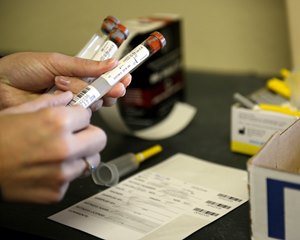New York State Approves Vet Techs at Racetracks


New York State regulators have given final approval to a rule allowing the use of veterinary technicians at racetracks across the state.
The rule OK'd by the New York State Gaming Commission "will authorize the use of less expensive, appropriately supervised veterinary technicians to make it more feasible for horsepersons and racetrack operators to deliver veterinary care to horses engaged in racing or stabled on the grounds of a licensed racetrack,'' according to the agency's written justification for the change.
Veterinary technicians, who would also be permitted to collect biological samples from racehorses, are required to follow all the same rules—and pay the same government fees—as veterinarians, such as requirements involving record keeping and possession and disposal of drugs and needles.
Veterinary technicians would have to be directed by a licensed veterinarian who is on the same premises, except when the technician is collecting biological samples.
"This means that the supervising veterinarian is aware of the horse being treated, has approved the administration of such treatment by the veterinary technician, and is present in the general vicinity,'' the Gaming Commission wrote when the rule was first proposed last October.
The New York Racing Association wrote the state supporting the new rule, but its letter arrived after the end of the formal public comment period.
In a statement Wednesday, NYRA spokesman Patrick McKenna said the new rule change by the state is "a commonsense approach to expand the universe of qualified and experienced practitioners to enhance equine health and safety."
Edmund Burns, the Gaming Commission's counsel, wrote the agency's board earlier this month that one timely public comment was received. He said the president of the New York State Veterinary Medical Society backed the rule change but called for "very strong guidelines for supervision by an off-premises veterinarian of veterinary technicians who are collecting biologic samples."
"The comment states that when the supervisor is not on the premises a veterinary technician might be influenced by persons who lack the competence of the supervising veterinarian. The comment states that guidelines would ensure the strict supervision that is vital to the best possible care of horses,'' Burns wrote in describing the group's concerns.
At the meeting's end, a board member said the Gaming Commission had received a report in the last 24 hours on the issue of use of riding crops in racing. No other details were revealed, except that the report will be studied by the agency and could be a topic at the next board meeting tentatively set for Feb. 22.
